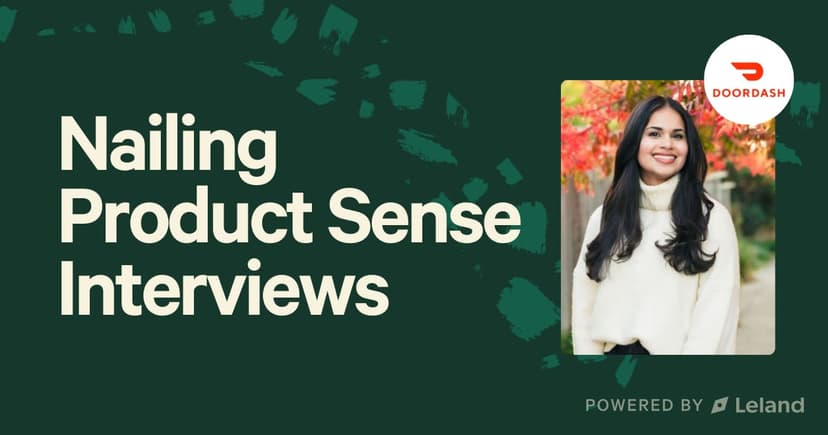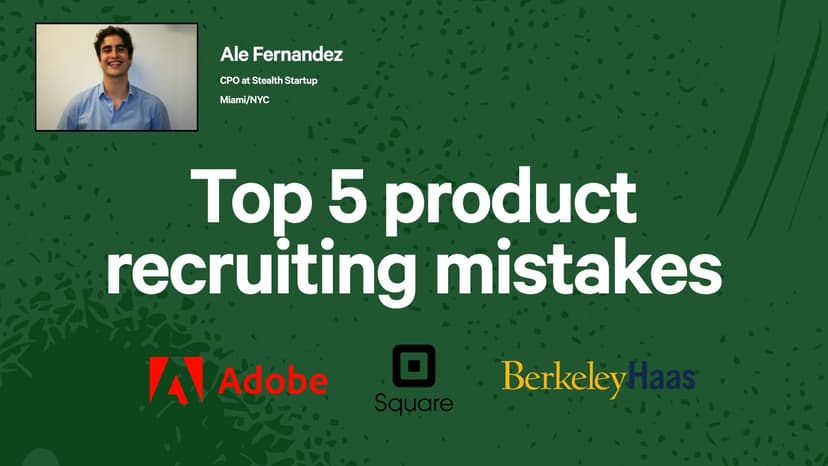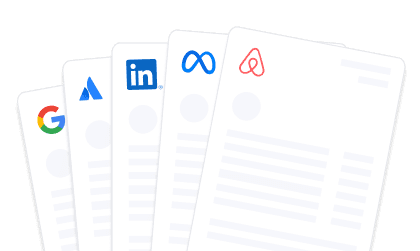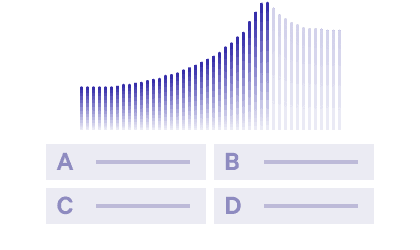How to Nail the Shopify APM Interview and Application
Associate Product Management Programs are a great way for entry-level PMs to get real product management experience and add top companies to their resume. Here is a guide to the Shopify APM program application process.
Posted October 3, 2025

Join a free event
Learn from top coaches and industry experts in live, interactive sessions you can join for free.
Table of Contents
The Shopify Associate Product Manager (APM) Program is one of the most competitive early-career product roles in tech. Designed to develop early product talent, it offers a comprehensive learning program for aspiring product managers looking to grow in a fast-paced, hands-on environment. If you’re hoping to break into product at a top tech company, this is a life-defining work opportunity.
In this guide, I’ll walk you through the Shopify APM hiring process, break down every interview round, and share real-world strategies (from both my personal experience and dozens of others) to help you stand out.
Read: Associate Product Manager Interview: What to Expect & How to Ace It
What Is the Shopify APM Program?
The Shopify APM Program is a full-time, entry-level role designed to grow future product leaders by giving them the skills, tools, and mentorship to thrive on a high-performing product team. APMs are placed across two different team placements, working with senior product managers on real features that directly impact people’s lives.
It’s a comprehensive learning program that balances autonomy with support. You’ll learn the product development life cycle, build for millions of merchants, and grow through professional and personal hypergrowth.
Key info:
- Role - Associate Product Manager (APM)
- Type - Full-time, new grad (no prior PM experience required)
- Timeline - Applications open in early January each year
- Eligibility - Final-year undergraduate students
- Team Structure - APMs get two team placements and a dedicated mentor
Read: The Ultimate Product Manager Interview Guide
Shopify APM Application Timeline
Below is the most accurate and updated Shopify APM timeline based on the 2025 recruitment cycle, Reddit threads, and insider coaching insights. While exact dates may vary slightly each year, this timeline reflects what you can expect if you're applying in 2026:
| Phase | Expected Date (2026) | What to Expect |
|---|---|---|
| Job Posting Live | Monday, January 6, 2026 | Shopify posts the APM job (Generalist + Technical tracks) on its careers site. Applications open immediately. |
| Job Posting Closing Date | Monday, January 13, 2026, at 11:59 pm ET | Submit your resume + 3 short-answer questions via Shopify's portal. No late submissions. |
| Mini Case Interview | January 20–24, 2026 | 30–45 min Zoom call with a current product manager. Case-based only (no behavioral). |
| Final Round Interview | January 30 – February 3, 2026 | 45–60 min Zoom call with a senior product manager. Similar format, deeper thinking required. |
| Offer Decisions | February 10–12, 2026 | Shopify notifies selected candidates. Typically, ~10–15 APMs are accepted from ~10,000+ applicants. |
| Start Date | Wednesday, April 1, 2026 | Full-time start date. Roles are remote-first with optional office presence in Canada (varies by team). |
Pro Tips:
- Applications open for only 1 week; mark your calendar and prepare in advance.
- Shopify operates on a rolling process internally, but offers are typically batched and sent out mid-February.
- All interviews are conducted virtually over Zoom. No take-home assignments.
From a pool of 12,000+ applicants, only ~10 were selected last year. That’s a <0.1% acceptance rate. This is a great opportunity, but also one that demands preparation.
Overview of the Shopify APM Program Application
The Shopify APM job posting typically goes live in early January, with applications open for only one week.
Here’s what the official posting includes:
Responsibilities
- Partner with teams to design and launch high-impact products that improve the lives of millions of merchants.
- Participate in all stages of the product development life cycle, from ideation to post-launch analysis.
- Collaborate with cross-functional teams, including engineers and designers, to ship valuable outcomes.
- Use data, research, and user feedback to inform decisions and define success metrics.
- Learn from a dedicated mentor while working across two different team placements.
Qualifications
- Final-year undergraduate student or recent grad, eligible to work in Canada.
- A track record of critical thought, curiosity, and building things from scratch.
- Strong written and verbal communication skills.
- Demonstrated interest in product, startups, or Shopify’s mission to make commerce better for everyone.
- Ability to thrive in a fast-paced environment and navigate ambiguity.
The application consists of:
- Resume
- Three short-answer essay questions (sent within the application form)
Those who advance will move on to two rounds of case-based interviews. Shopify emphasizes that they’re looking for resourceful self-starters who demonstrate strong product thinking and a passion for solving real merchant problems.
Note: Shopify only accepts applications during the short open window, typically 7–8 days, so make sure you don’t miss the job posting closing date.
Inside the Shopify APM Interview Process
Getting into the Shopify APM program isn’t just about having a polished resume; it’s about showing depth, clarity, and strong product thinking at every step. Here's a breakdown of what to expect in each stage of the interview process, and how to stand out like a pro.
Step 1: The Shopify APM Application
The application might look simple at first glance, but it’s one of the most important filters in the hiring process. You’ll submit your resume, basic details, and respond to three short-answer essay questions. These essays aren’t just a formality; they serve as your first shot at telling your life story, demonstrating product intuition, and showing that you’ve done real self-reflection.
Past essay prompts include:
- What is a software product you’ve recently started using? What sets it apart?
- Describe a difficult decision you’ve had to make.
- What’s a project you’re proud of?
Each of these questions is designed to test your ability to think clearly, communicate effectively, and reflect on your experience. Shopify wants to know: can you synthesize complexity and communicate with purpose? Your writing should reflect who you are as a builder and thinker.
The strongest applicants treat these essays as mini-interviews. You don’t need to have launched a product or started a company, but you should show evidence of critical thought, ownership, and the ability to learn rapidly. This is also where many candidates underestimate the bar, so polish matters.
When I applied, I worked with two Leland coaches: Warren, a current Shopify APM, and Mike, a former Atlassian APM. They helped me strengthen my framing, sharpen my language, and draw clearer connections between my projects and product thinking. Their feedback helped me turn decent answers into compelling narratives.
And if you're worried about not having a referral, I didn’t either. What got me through was strong storytelling, clarity of thought, and proof of a track record of impact. Shopify reads closely, so don’t waste the opportunity.
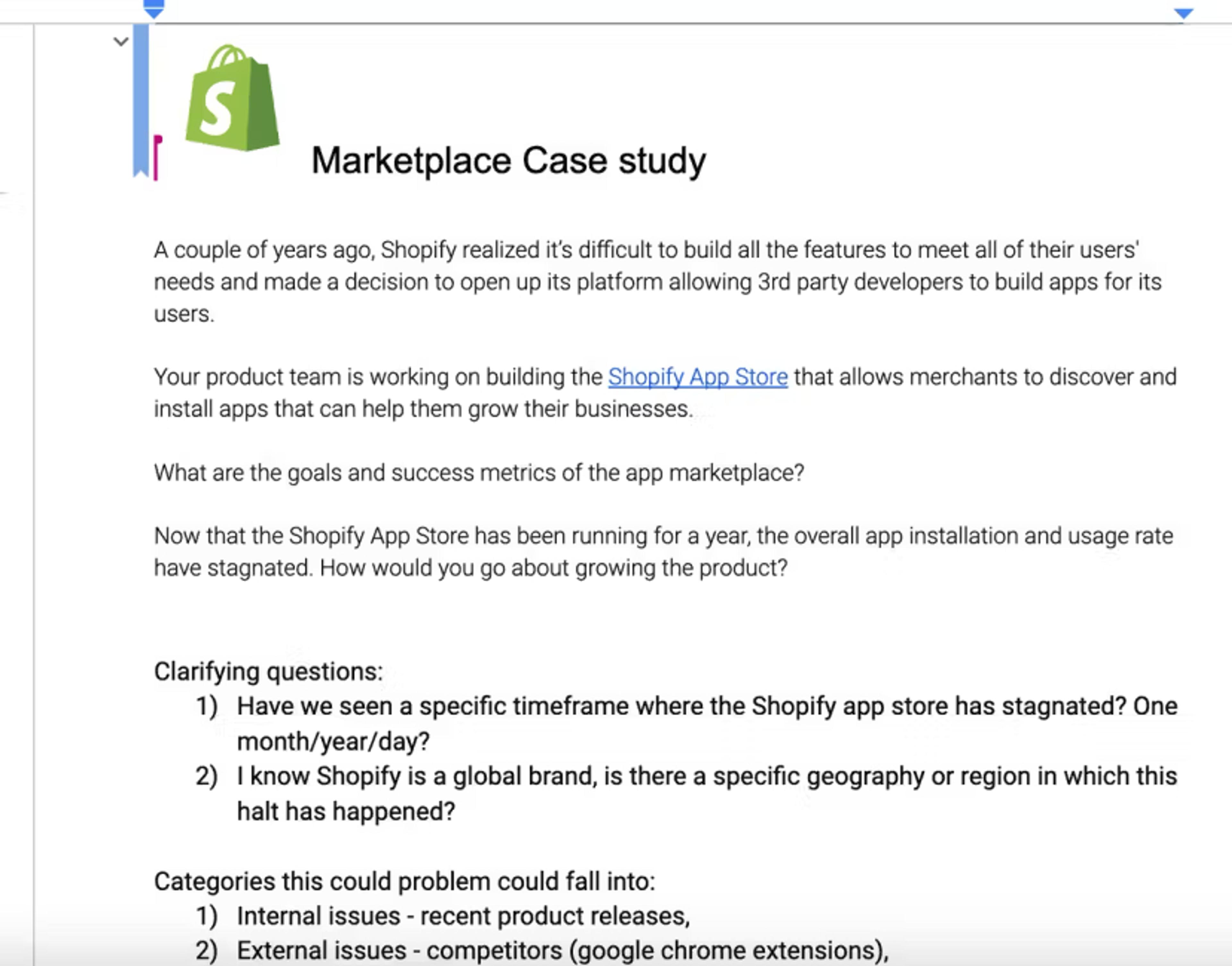
Step 2: The Mini Case Study Interview
Once your application makes it through the first cut, you’ll be invited to a 30–45-minute Zoom interview with a current product manager at Shopify. This is a live case study, focused almost entirely on your product thinking, no behavioral questions, no fluff.
As one applicant put it: “No fluff, they jumped straight into the case.”
Here’s the actual prompt I got: “You notice fewer new merchants are publishing stores after signup. What would you do?”
This stage is all about structure, communication, and clarity under pressure. Shopify wants to see how you think through ambiguous product challenges in real time. They're evaluating whether you can break down a problem systematically, ask smart, clarifying questions, and avoid jumping to solutions without fully understanding the user need.
To prepare, I used ChatGPT to generate e-commerce case prompts and practiced responding out loud. I also worked with a coach to fine-tune my frameworks and delivery. Books like Decode and Conquer and Cracking the PM Interview helped, but only when combined with mock interviews and feedback.
At this stage, your goal is to demonstrate how you approach the unknown, collaborate in real time, and apply the fundamentals of product management in a structured, thoughtful way.
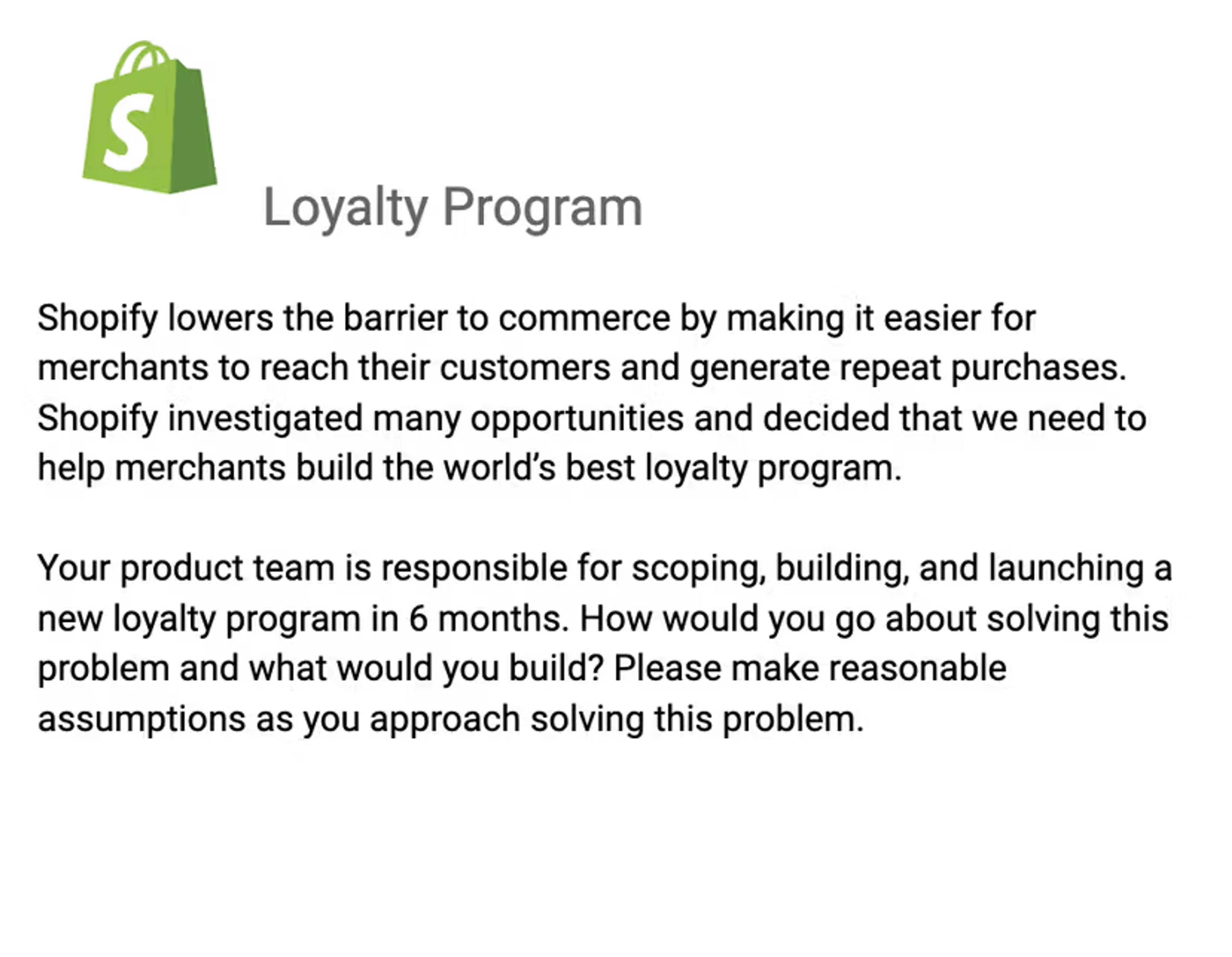
Step 3: Final Round Interview with a Senior PM
If you make it past the mini case, you’ll move on to the final round: a second product case, this time with a senior product manager. It’s more challenging, not because the format is different, but because expectations are higher. You're expected to go deeper, think sharper, and synthesize complexity with precision.
As one applicant put it: “If you rush to a solution, you won’t get the job.”
The real test here is your ability to think like a product leader, not just a junior PM. That means exploring the root of the problem, weighing trade-offs, thinking holistically about users and the product development life cycle, and being willing to stay in the problem space until you're sure you've identified the right thing to solve.
Don’t default to features. Instead, ask: What’s the user's pain point? What constraints are in play? What does success look like? The more structured your thinking, the more confident your interviewer will be in your ability to thrive on a high-performing product team.
Again, this is where coaching makes a difference. I ran mock interviews with PMs who knew what Shopify looks for. They helped me course-correct when I was being too surface-level or over-indexing on frameworks. That kind of feedback is hard to get from peers or on your own, and it made all the difference.
If you want to prep like someone who's actually going to get the offer, the final round is where it counts. Nail this, and you're one step away from one of the most competitive APM roles in tech.
What Shopify Looks For
The strongest Shopify APM candidates are builders, storytellers, and self-starters with real product intuition. Across dozens of coaching sessions and threads, a clear profile emerges: Shopify looks for candidates who’ve taken initiative, whether that’s launching a side project, leading an organization, or building something from scratch.
They want to see a clear, intentional career narrative that answers why product, why now, and why Shopify. The best candidates show they can operate in ambiguity, thrive in a fast-paced environment, and don’t need step-by-step instructions to move forward. Deep curiosity about e-commerce and merchants is a huge plus, as Shopify hires people who believe in making commerce better for everyone, not just those who want a PM title.
Strong written communication is essential (especially given Shopify’s async, written-first culture), and candidates should demonstrate the ability to learn rapidly, think critically, and seek detailed direction only when necessary. This isn’t about checking boxes but about showing you already think like a product leader, even if you’re early in your career.
Shopify APM Interview Questions
Shopify's interview process is designed to test how you think, not just what you know. From the first case round to the final interview with a senior PM, every question aims to assess your product sense, analytical thinking, and ability to communicate clearly under pressure. Unlike some other APM programs that focus heavily on behavioral questions, Shopify leans into live product cases that feel like real-world PM challenges.
Common Shopify APM interview questions:
These are real questions reported by past applicants on Glassdoor and Reddit:
- “You notice that new merchants are signing up, but fewer are opening stores. What would you do?”
- “Pick a product you love. How would you improve it for one specific user segment?”
- “You’re launching a new feature, and metrics drop post-release. What do you do next?”
- “Walk me through how you’d evaluate whether to remove a feature from Shopify.”
- “How would you prioritize between two product improvements with limited engineering bandwidth?”
- “Design a dashboard for a merchant who just made their first sale.”
- “What’s a product decision you disagreed with in a past team or org?”
Notice the pattern? Shopify doesn’t use case prompts with tons of constraints or numbers. They’re looking for structured thinking, not math. Your job is to ask thoughtful, clarifying questions, scope the problem, surface assumptions, and walk the interviewer through your reasoning, not to “solve” the case like a consulting interview.
Shopify PMs are evaluating your ability to:
- Frame ambiguous problems and define success metrics
- Prioritize based on user needs and product goals
- Show empathy for merchants, not just generic users
- Think critically, do not rush to build
- Communicate clearly and reflect out loud
Many candidates fail by diving straight into features or forgetting to define the user and problem space. The best answers come from slowing down, structuring your approach (e.g., using the double diamond, or a problem-opportunity-solution-outcome framework), and tying everything back to real merchant impact.
Expert tip: Treat each question like a live product discovery session, not a performance. I practiced with Leland coaches who helped me simulate high-pressure cases, debug my thinking, and build confidence. Their feedback helped me go beyond theory and think like a PM Shopify would actually hire.
Read: The 50 Most Common Product Manager Interview Questions (2025)
Final Thoughts
The Shopify APM opportunity is rare, and getting in is tough. But with the right preparation, feedback, and mindset, you can absolutely do it. This is not the quarter to submit a rushed application or rely on generic responses. Instead, approach this as an intentional act of self-development, an opportunity to reflect on your story, your skills, and your fit within the current tech landscape.
This program is designed for those who want to achieve impactful results early in their careers. You’ll work within Shopify’s fundamental workflow: embrace differences, autonomy, user-centric thinking, and the ability to embrace differences across diverse product teams. Whether you're someone who thrives in ambiguity or you prefer detailed direction, Shopify provides the right balance of support and challenge to accelerate your growth.
Shopify isn’t just seeking professionals with perfect resumes. They’re looking for real builders, people who ask better questions, adapt quickly, and care deeply about their impact. If you're energized by the company's forward work digital-first culture and crave steep learning curves, this program could be the most transformative step of your career.
Coaching Can 10x Your Prep
I wouldn’t have made it to the final round without coaching. I worked with:
- Warren D. (current Shopify APM) – helped me tailor my story
- Mike M. (former Atlassian APM) – walked through case prep and mock interviews
They constantly push beyond surface-level prep and helped me turn my raw experiences into a compelling candidate story.
Work with a top product management coach to get personalized feedback on your essays, run mock interviews with real case prompts, and build a strategy that highlights your strengths. Browse PM coaches here. Also, join free events for more strategic PM insights!
- How to Ace Your Capital One Product Manager Interview
- How to Nail the Atlassian APM Interview
- How to Get Into the Google APM Program
- How to Get Into the Uber APM Program
- How to Get Into the IBM Associate Product Manager (APM) Program
- How to Get Into the Yahoo APM Program
- How to Get Into the Lyft APM Program
- How to Get Into the Salesforce APM Program
FAQs
What is the job posting closing date for Shopify APM?
- It’s typically one week after applications open. For the 2025–2026 cycle, the expected closing date is Monday, January 13, 2026, at 11:59 pm ET. Shopify is strict about deadlines, so submit early to avoid technical issues or disqualification.
What’s the difference between the generalist and technical stream?
- Generalist roles are open to all majors; technical APMs tend to work on platform teams and may require a CS background. Reddit users suggest you pick based on interest and experience.
Does Shopify provide immigration support or require legal authorization?
- Yes, but you must be authorized to work in Canada. Selected candidates may receive immigration support where eligible.
What’s the expected salary for a Shopify APM?
- Not public, but generally in line with other top APM programs. Expect compensation to reflect the short-term nature of a 1–2 year rotational program.
How many team placements do APMs get?
- Two. Shopify believes in giving APMs broad exposure to teams and products.





